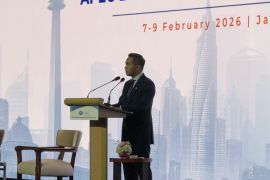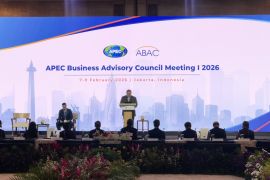Such commitment will be implemented through initiatives that boost their access to capital, assets and markets, skills and capacity building, leadership opportunities, voice and agency, and access to innovation and technology, according to a written statement issued by the APEC Secretariat and received here on Monday.
"When we create an enabling environment for women to achieve their economic potential and contribute actively to the global economy, it is not only empowering but also beneficial," Rebecca Sta Maria, the APEC Secretariat’s executive director, stated.
Sta Maria further remarked that the APEC had taken serious cognizance of the inclusion of women in the regional economy and striven to advance the economic integration of women for the last two decades.
Currently, the region’s labor force constitutes approximately 600 million women, with over 60 percent engaged in the formal sector.
However, the full potential of their contribution to the economy remains untapped. Moreover, women often take on informal work, such as caretaking and other domestic activities.
APEC member economies agreed to the La Serena Roadmap for Women and Inclusive Growth in 2019. The roadmap details directions and policy actions that will guide and drive members to enhance women’s economic participation in the region that will lead to more inclusive economic growth.
Administered by the APEC Policy Partnership on Women and the Economy, the roadmap seeks to encourage actions in five cross-cutting areas affecting economic growth for women.
Those five cross-cutting areas are: first, empowering women through access to capital and markets; second, strengthening women’s labor force participation; third, improving access of women to leadership positions in all levels of decision-making; fourth, supporting women’s education, training and skills development and access in a changing world of work; fifth, advancing women’s economic empowerment through data collection and analysis.
Depending on each APEC member economy’s social, economic, political, and legal circumstances, the roadmap puts forward four targets, including having laws, policies, and regulations in place by 2030 that prohibit discrimination on the basis of sex in employment access, opportunities, and conditions.
Another target is increasing the region’s gender balance among science, technology, engineering and mathematics graduates in tertiary education, and in research and development positions.
"Now, the APEC has concrete targets, such as putting in place laws, policies, and regulations that will provide equal access to capital and assets for both men and women and increase the region’s gender balance in leadership positions," Sta Maria stated.
Malaysia, as the APEC host this year, will continually enhance women's participation in the economy under its second priority of inclusive economic participation.
EDITED BY INE
Related news: Software developers invited to take up 2020 APEC App Challenge
Related news: APEC regional dialog underway amid COVID-19 outbreak
Reporter: Yuni Arisandy Sinaga
Editor: Fardah Assegaf
Copyright © ANTARA 2020












